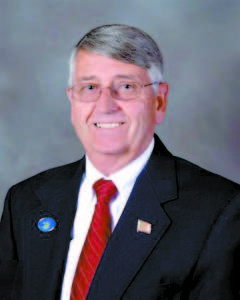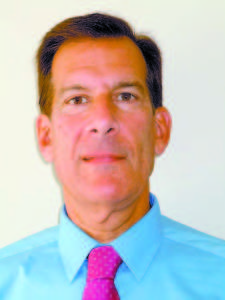At the Polls: Senate District 12

Gary Plummer
Republican
• Age: 66
• Resident of Windham; daughters Sarah and Maranda; grandchildren Mariah and Ben.
• Education: Bachelor’s degree in education from Gorham State College; master’s degree in administration (education) from the University of Maine.
• Business: Retired teacher (34 years); also worked for private businesses during college and summer breaks.
• Community groups: Windham Neighbors Helping Neighbors (provides fuel assistance to people in need); Windham Rotary Garden Club (planting flowers at Foster’s Corner); and Cumberland County Civic Center Board of Trustees.
• Professional groups: Windham Town Council 1975–1982 (chairman two years); Cumberland County Commissioner 1983–2004 (chairman six years); Maine House of Representatives 2004–2012 (chairman of the Criminal Justice and Public Safety Committee two years).
• Endorsed: I have been endorsed by several groups in this election, but the endorsement that I am looking for is that of the people on Nov. 6.
Senate District 12: Casco, Frye Island, Raymond, Standish, Windham and Hollis.
The Candidates: With incumbent Bill Diamond reaching his term limit, the candidates for Senate District 12 are Republican Gary Plummer and Independent Martin Shuer.
Their Positions: The News asked the candidates the following questions (answers arranged alphabetically):
Q. Gridlock is a problem, so how do you propose to overcome partisan politics?
Plummer: In Maine, I think gridlock is more of a perception than a problem. There are some people who would have the public believe that the “other†party refuses to work together, but in reality, I don’t see this happening on a regular basis. I serve as co-chairman of the Criminal Justice and Public Safety Committee. Very, very few bills were reported out of our committee on a straight party line vote. This has been true for our committee for the four terms that I have served.
On the floor of the House and Senate, there have been a few strict party line votes, but for the most part, this is not true, at the state level. The solution is to continue our work with the best interests of the people of Maine in mind.
Shuer: I’m running as an unenrolled Independent candidate for the Maine Senate District 12 seat to be an effective advocate for the residents of Casco, Raymond, Windham, Standish, Hollis, and Frye Island in their state government. Our governance shouldn’t be about “D’s†or “R’s†rather “M’s†(Mainers).
This campaign is motivated by the need to engage in a common sense approach to moving Maine forward. Working in a thoughtful non-partisan manner, I will advocate for greater transparency and accountability while offering creative solutions. Improving our economy, educational resources, energy policies, health care system and infrastructure, while protecting our natural resources and environment, will require putting partisan politics aside. Working with others in a collaborative manner toward mutual goals on behalf of all Mainers we can and will make a difference.
Q. What characteristics would you bring to the position that would make you an effective politician?
Plummer: In all of my elective and appointed positions, I have been able to work for solutions to problems. This has worked well for me at the town, county and state levels over the years. I listen to all sides of an issue and work to find the answers that work to solve problems. As a retired person, I have the time to dedicate to this position.
Shuer: My long career as a photographer has given me an ability to gain perspective, to look at the wider view. Being self-employed as a small business person for over 25 years has required insight and flexibility in working with a wide range of business partners. I’d apply those characteristics to problem solving in Augusta, weighing all the facts before coming to objective decisions.
My ability to engage others in process has been successful at local level and is something I aspire to accomplish while serving in the legislature. As an Independent, there would be great opportunity to broker a consensual approach to the concerns facing our state and promote our state motto, “Dirigo: I lead.â€
Voters are generally dissatisfied with the partisan nature of our state and national politics and want their voice to be heard again through their elective officials. I’d bring integrity and a fresh positive outlook to the “conversation.â€

Martin Shuer
Independent
• Age: 58
• Windham resident since 1986 (my family moved to Bangor in 1964); wife, Sue, married 33 years, assistant to CEO, Goodwill Industries of Northern New England; daughter, Sarah Rose, 14, freshman at Windham High School; son, David, 12, Windham Middle School, grade 7.
• Education: High School graduate 1972; Boston University; University of Bridgeport political science major.
• Business: 35-year career professional photographer; small business owner, Martin S. Shuer, Photographer (est. 1986); produce a line of Maine-made note cards and prints from my original photographs of the New England landscape, “Maine Made America’s Best,†website: www.mshuerphoto.com
• Professional affiliations/member: Maine Products Marketing Program, Maine International Trade Center, Photographic Resource Center at Boston University, Portland Museum of Art.
• Community: Member MDOT Windham River Road Context Sensitive Solutions Public Advisory Committee; chairman of Windham Bike/Ped/Trails Committee; member of Lippman Park Preserve/Chaffin Pond Stakeholder Committee; citizen advocate in Windham Town government and RSU14 School District; Boy Scouts of America assistant scoutmaster Troop 805.
• Endorsed by Maine Education Association, Maine AFL-CIO, Sierra Club, Maine Conservation Voters, Maine State Employees Association-SEIU Local 1989, Professional Fire Fighters of Maine.
Q. What do you believe are the three major issues facing the state, and how would you propose to address them?
Plummer: Jobs. The economy. Taxes. The economy will be improved by the creation of good jobs. Jobs must be created by the private sector. In this region, that is small businesses. Government needs to do the things that it can do to make it possible for those businesses to succeed and prosper.
In talking with business owners around Senate District 12, I have heard again and again how difficult it is to deal with the mired of regulations in order to start or expand a business. They are not asking us to eliminate all regulation, but they are advocating for a clear, concise and streamlined process. Whether the answer is “yes†or “no,†they should be able to get an answer in a reasonable amount of time.
The role of government is to create predictable policies that are clear and concise and then to assist businesses with the process.
The creation of new jobs will improve the economy and the newly employed people will pay new taxes so that we will not have to consider raising taxes.
Shuer: The economy/jobs, health care and education.
In order to solve the many significant problems being faced by Mainers and Americans, our elective officials need to start working together in a non-partisan manner. We need a vision and a cooperative approach put back into our legislative “toolbox.†It starts there. History has proven that when Americans work together anything is possible. I remain optimistic that our best days are still ahead of us. From winning World Wars to walking on the moon, responding to natural disasters to finding innovative medical cures and advanced technological discoveries, politics have been put aside.
The practical approach will lie in greater oversight of our state agencies and how we determine priorities on behalf of Maine residents. Large problems often require bold initiatives for resolution.
More than a lack of finance, there’s been a parallel lack of willingness to evaluate what might be fundamentally flawed in some of our approaches to doing “the people’s business.â€
Q. What will you do to better serve your constituents in western Maine?
Plummer: As a Cumberland County Commissioner, I did represent the western Maine towns of that county for many years. I believe that I understand the needs of western Maine. I will continue to listen to the people and act in their best interest.
Shuer: I will continue to engage them and listen to their concerns, gathering information to effectively serve them in Augusta. I will always be accessible and responsive to my constituents in a timely, respectful and thoughtful manner. Throughout my campaign, I’ve continually acquired vital and helpful feedback in talking with people directly, attending various municipal and private group meetings, participating in public forums to listen and learn while forming an effective advocacy plan on their behalf. I will build on their recognition of me as someone who will return to the roots of our democracy and advocate, “For the people, by the people.â€
Q. How do we balance the needs of people (such as health care, education, etc.) while trying to balance the state’s budget?
Plummer: According to law, Maine must adopt a balanced budget. We accomplished this in the last session and still added $62 million dollars to education funding. It is a matter of setting priorities and using the resources that we have to fund the most important programs
Shuer: By taking a realistic and practical approach to tackling difficult problems. First, we need to engage in a historic assessment of what’s gone wrong. More than the impacts of a deep recession economy, our state government has been significantly affected by the loss of traditional federal funding for many important Maine programs. That dynamic has resulted in services and programs reduced or eliminated and the burden of cost being deferred to municipalities and school districts through increased property taxes. This continues to be an equation for failure.
Working Maine families are at the breaking point and we must find a better way to sustain necessary programs and services. Some of it can come from legislative advocacy by expanding helpful programs like Efficiency Maine and Grow Maine Smart, along within a deeper commitment to Pine Tree Development zone incentives for business growth.
There needs to be increased oversight of state agencies like the Department of Health and Human Services (DHHS) to improve transparency and the accountability of their programs and budget. We need to rein in tax loopholes that benefit the wealthy. Provide support to innovative private sector job creators, including those in alternative energy technologies, to replace the loss of our traditional manufacturing employers.
If elected, I would personally advocate for a national economic recovery program that repairs our failing infrastructure much like the New Deal initiatives of the Depression era. A broader “nation building†approach through that national program would create jobs, stimulate our consumer-driven economy, while repairing roads, bridges, schools, energy resources, etc. that Maine can simply otherwise not afford.


